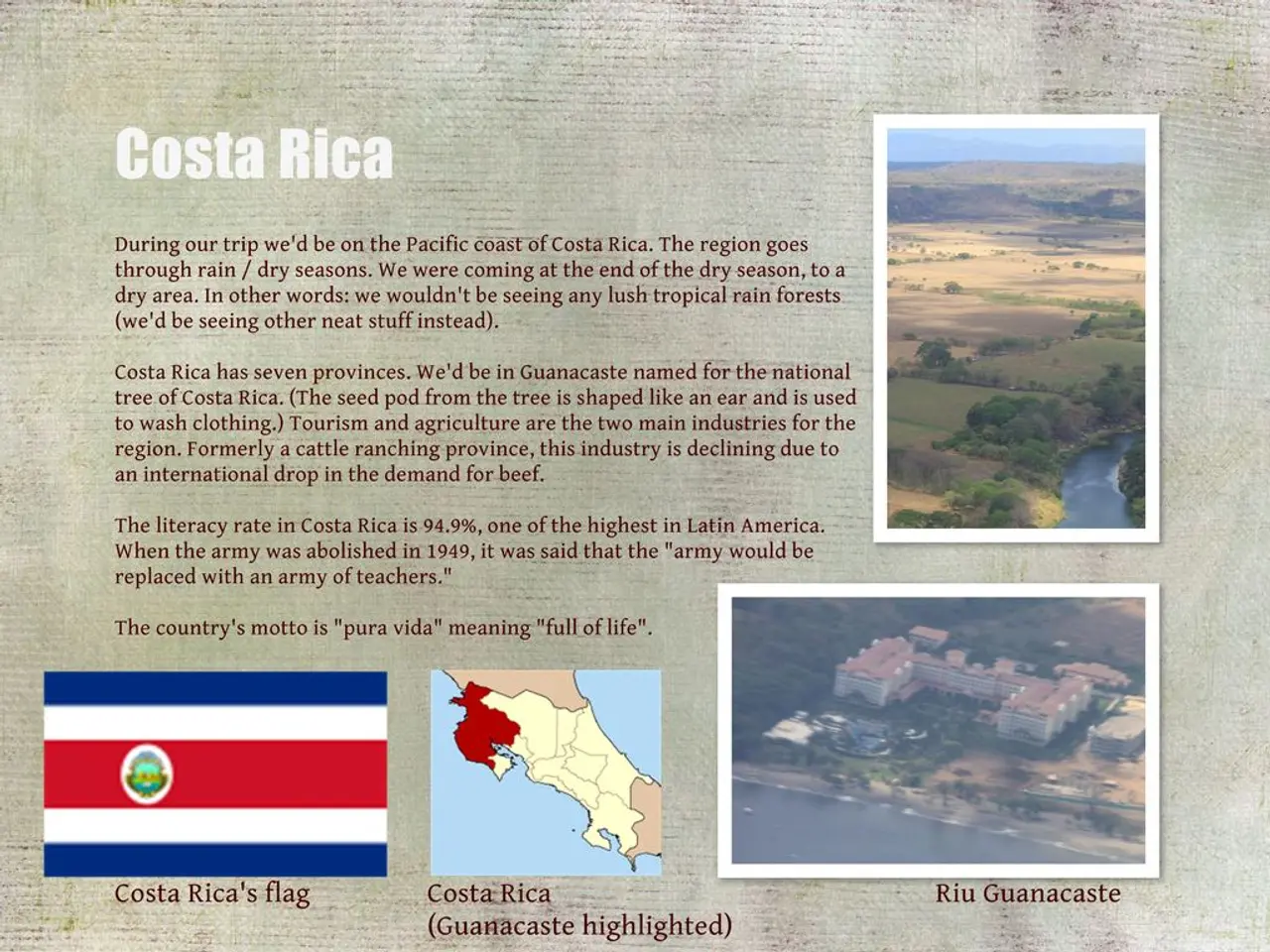Presidential contender from Colombia met a tragic end following an assassination.
Miguel Uribe Turbay, a prominent figure in Colombian politics and the face of the right-wing opposition party Democratic Center, tragically lost his life two months after an assassination attempt on June 7, 2025. The attack occurred during an electoral event in Fontibón, Bogotá.
Uribe, a 39-year-old politician from a distinguished political and journalistic dynasty, was shot in the head during the incident. His maternal grandfather, Julio Cesar Turbay, was President of Colombia from 1978 to 1982, while his paternal grandfather led the Liberal Party.
The background of the attack remains unclear, but investigations have revealed a coordinated and well-planned operation involving several individuals playing distinct roles.
The alleged mastermind of the attack is Elder José Arteaga Hernández, alias "El Costeño" or "Chipi." He was arrested in early July in Bogotá and charged with attempted aggravated homicide, arms trafficking, and exploitation of minors for criminal activities.
Cristian González Ardila, a 15-year-old teenage suspect, carried out the shooting. He was arrested at the scene and charged with attempted homicide and illegal possession of a firearm. Katherine Andrea Martínez, alias "Gabriela," handed the teenager the 9mm Glock pistol used in the attack. She was indicted for aggravated homicide and aggravated criminal association.
William Fernando González Cruz was accused of transporting "El Costeño" and "Gabriela" after the attack. He was also indicted for aggravated homicide and aggravated criminal association. Carlos Eduardo Mora González is alleged to have provided logistical support for the operation. A sixth person, an escape driver involved in the crime, was arrested on July 18.
All six suspects have pleaded not guilty and remain in custody as the investigation continues.
Colombia has a history of political violence, with several presidential candidates killed in the past. Despite improvements in the security situation since the 2016 peace agreement, parts of Colombia are still controlled by illegal groups. The alleged mastermind of the attack has connections to splinter groups of the left-wing guerrilla organization Farc, according to the prosecutor's office.
Uribe was known for his sharp criticism of the government of left-wing President Gustavo Petro. His mother, Diana Turbay, was a journalist who was killed in a failed rescue operation in 1991. The Medellín cartel of drug lord Pablo Escobar had kidnapped her.
At the age of 25, Uribe was elected to the Bogotá city council. In the 2022 parliamentary elections, he led his party's Senate list and entered the chamber.
The civil war in Colombia involved leftist rebels, right-wing paramilitaries, and the military. The conflict, which waged in Colombia for 52 years, resulted in 220,000 deaths and millions of displaced people.
[1] "Suspects arrested in connection with the assassination attempt on Colombian presidential candidate Miguel Uribe Turbay." BBC News, July 14, 2025. [Online]. Available: https://www.bbc.com/news/world-latin-america-58011313
[2] "Colombia's political violence: A brief history." Al Jazeera, June 18, 2021. [Online]. Available: https://www.aljazeera.com/news/2021/6/18/colombias-political-violence-a-brief-history
[3] "Six suspects arrested in connection with the assassination attempt on Colombian presidential candidate Miguel Uribe Turbay." CNN, July 15, 2025. [Online]. Available: https://edition.cnn.com/2025/07/15/americas/colombia-presidential-candidate-assassination-attempt-arrests/index.html
[4] "Colombia arrests six suspects in assassination attempt on presidential candidate Uribe." Reuters, July 15, 2025. [Online]. Available: https://www.reuters.com/world/americas/colombia-arrests-six-suspects-assassination-attempt-presidential-candidate-uribe-2025-07-15/
The arrests of Elder José Arteaga Hernández and six other individuals have been linked to the assassination attempt on Colombian presidential candidate Miguel Uribe Turbay. Politicians and members of the community are closely following the investigations as general-news outlets report on crime-and-justice developments. Given Uribe's prominent status in Colombian politics and his sharp criticism of left-wing President Gustavo Petro, the community policy and employment policy discussions may be affected by the ongoing attack investigations. The history of political violence in Colombia reveals a complex relationship between leftist rebels, right-wing paramilitaries, and the military, which has resulted in loss of life and displacement over several decades.




